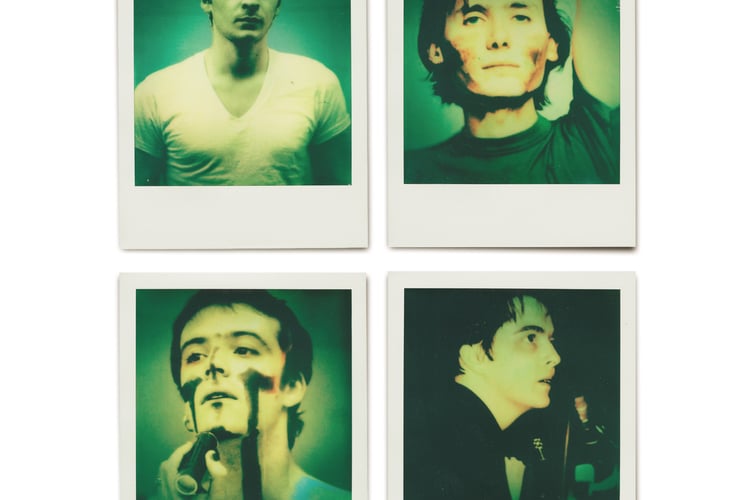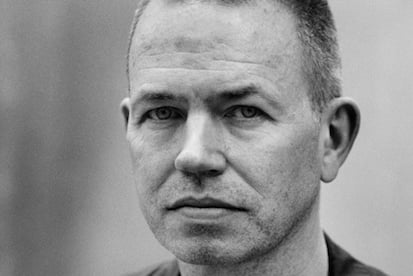JUST like Liverpool has the Beatles and Manchester has Oasis, Wales has the Manic Street Preachers.
Like classic Welsh rugby teams of times past, the Manics have a habit of embodying the underdog status of the country that helped shape them and a proud history of punching above their weight.
An instinctive knack for flamboyant self-sabotage, a fierce defiance undermined by a sullen weariness, and a drive to define themselves by romantic and unforgiving ideals are all very Manic and Welsh-like things.
As is a commitment to sticking to your guns in the face of a mocking and dismissive world, and a determination to transcend the limits others have imposed.
These are just a few of the reasons why a group of lads from a small town in the South Wales valleys has endured and lasted for nearly four decades.
They’re proud of their province but not parochial.
It doesn’t matter if they were channeling Aneurin Bevan or Chuck D, the Manics were all about celebrating individuals who ripped up the design for life and made their own plans.
It was a DIY punk ethic that said, “If not us boys, then who?”
And it was the same spirit that ran like a live wire through the Chartist Marches, the building of the Miner’s Hospitals, and everyone else who has ever read a book, listened to a song, watched a film, and thought, “There’s a lot more to life than they’re telling us.”
Libraries gave them power, and rock n ‘roll loaded the gun. It wasn’t about, to paraphrase Motley Crue, “Living on a jet making love to someone else’s dreams.” It was about thinking for yourself and wiggling two fingers free from the suffocating straitjacket of conformity, and sticking them up to the world.
It was about putting your little corner of the globe, an area that had been trashed, gutted, and brutalised by the polices of neoliberal capitalism, back on the map.
It’s the realisation that you can stand out from the crowd without looking down on everyone else. The awareness that you don’t have to sell out, but you can cash in if you’ve got the fire and skill to back it up.
Because attitude and intelligence are all well and good, but if the Manics didn’t have the tunes and the talent, no one would still be writing or talking about them.
All the best rock n’ roll bands remind us of childhood gangs, and the Manics have that quality in bucketfuls.
They’ve stuck together through thick and thin and managed to hold fast to the reasons why they formed a group in the first place.
They’ve outlasted grunge, new wave, Britpop, emo, and Ed Sheeran and have been the subject of countless books and essays.
They’re now middle-aged men who’ve still got plenty of rock n’ roll kudos, still sell a ton of records, and you’ll never see an empty seat at any of their gigs.
What’s their secret?
Trying to pin down their appeal is a bit like chasing butterflies, albeit very well-read butterflies who have overdone it on the eyeliner, but veteran music journalist Keith Cameron has perhaps made the finest and most exhaustive effort yet.
The title of his magnum opus, which will be released on September 11, is “168 Songs of Hatred and Failure.”

It’s a very Manics like title and not a book you’d associate with say, Coldplay!
Yet Keith is not just any old music journalist; he’s a Manics fan through and through, and someone who has interviewed the band countless times through the years.
He told the Chronicle, “The title of the book has an interesting backstory. After the Manics had released their best-of compilation ‘National Treasures’ in 2011, they were at a bit of a loss at what to do next.
“Nicky Wire came up with the idea of releasing an album in the same vein as The Magnetic Fields ’69 Love Songs’, but because they were the Manics and didn’t do love songs, it would be called ’70 Songs of Hatred and Failure.’
“Nicky soon realised it might be a bit of a stretch to write 70 songs, and so the project was dumped and they released ‘Rewind The Film’ and ‘Futurology’ instead.”
A few years ago when Keith’s agent asked if he’d like to follow up his previous book ‘Mudhoney: The Sound And The Fury From Seattle’ with a book on the Manics. He was intrigued.

Not wanting to write a straight biography, he decided to propose a song-by-song approach to the Manics camp, and because he always loved the title, he suggested calling it ’70 Songs of Hatred and Failure.’
Keith explained, “Nicky thought it was a great idea and obviously loved the title, but he said, ’70 is not the right number. It needs to be 168!’
Keith added, “Obviously, the book became a lot longer project, but the number 168 has great significance in the Manics’ world. Fans will know the lyrics in ‘Motown Junk’ about the music making your heart and brain stop for 168 seconds.”
An official description of the book reads, “Because it was music that saved them, it’s through the prism of their music that Keith Cameron tells the definitive history of Manic Street Preachers, drawing on many hours of new interviews to dive deep into 168 songs from 1988’s debut single ’Suicide Alley’ to the late day peaks of 2025’s album ‘Critical Thinking.’
“Writing with the band’s full co-operation, his book charts the dynamic evolution of a universe in which Karl Marx and Kylie Minogue happily co-exist, that accords Rush and The Clash equal favour, and where Morrissey and Marr meet Torvill and Dean via Nietzche and New Order in a single four-minute pop song - the story of Manic Street Preacher is unique in pop.”
It’s strong stuff! But put a writer like Keith together with a band like the Manics and the result is always going to be a knockout!
Manic's bassist and lyricist Nicky Wire has even gone on record as saying, “No one understands the inner working and shared aesthetics of Manic Street Preachers like Keith Cameron: the humour, the misery, the eternal doubt, the culture-alienation-boredom and despair.
“This book illuminates 35 years of songwriting history with immense skill, expert research, dedication, and boundless patience.”
Wire added, “The art of writing about music and words is dying - the alchemy, the influences, the inexplicable accidents, the capacity songs have to transcend the people who wrote them; I’d like to think the art survives in this phenomenal book.”
All accolades aside, Keith told the Chronicle that when he was well aware when writing the book, “the burden of responsibility” that came with it.
“When you’re writing about a band that people have many varied and firm opinions about, you know your work is going to come under a lot of scrutiny,” explained Keith.
“The Manics are one of those bands there’s a wealth of information on. There’s been books, essays, and even PHDs all written about various aspects of their history. So as a writer, you are aware of that burden of responsibility and just hope you can add something new and interesting to the discourse.”
Keith added, “All credit to the Manics, though, they have very kind hearts and were so generous with their time and mental energy. The book definitely wouldn’t be what it is if they hadn’t agreed to the countless interviews and questions.”
Picking what songs should be covered in the book was not as easy as you might think.
“In some cases, they’d be adamant about what songs they didn’t want in the book,” said Keith.
“‘Underdogs’ from ‘Send Away The Tigers’ was a case in point. I said, ‘You have to do this one,’ but they really hated it. Eventually, I persuaded them that in the context of where they were at the time and the fact they released it as single needed discussing. Eventually they agreed because they’ve very accommodating when it comes to listening to other people’s points of views.
“Not only that, as well as being the band’s biggest fan, Nicky is also their biggest critic. He’s well aware of the mythology surrounding the band and has a Manics archive that is second to none. He’s got an amazing memory for everything that’s ever been written about them.”
Different Manics fans will have a different favourite album and song, but for Keith, it’ll always be ‘The Holy Bible’ and ‘Faster.’
“It’s hard to pick a favourite song, but ‘Faster’ tops the list for a number of reasons,” explained Keith.
“Not only is it the last lyric that Nicky and Richey worked on together, but the song itself and the performances are astounding. It still blows my mind to this day. And I think ‘The Holy Bible’ as a whole is just a capital piece of work.”
Keith added, “When ‘Motown Junk’ first came out, I thought it was amazing, but despite standout songs like ‘Motorcycle Emptiness,’ I felt they missed an opportunity with ‘Generation Terrorists.’ Although it had some classic tracks, I felt ‘Gold Against The Soul’ was a weak record and the sound of a band looking for an identity, but when I heard ‘Holy Bible’ for the first time, it all made sense and ever since then I’ve been a true believer.”
The band’s third album also proved to be Richey Edwards’ swan song. But what a parting shot. A once in a generation masterpiece that was a confession, an accusation, a denial, and a defiant cry from the abyss. An album for the early hours and the dark days.
Richey may have believed in nothing, but it was his nothing, and it wasn’t for sale.
James may have been able to play the guitar like Slash, but Richey wasn’t exactly known for his musical ability.
Yet what did that matter when you had the effortless cool of the perpetual outsider and a truth that learned to spell? And the word that truth spelled out in ten-foot-high bright neon capitals was integrity!
Looking back at the lyrics from the Holy Bible and the writing was very much on the wall for someone like Richey, but like most things to do with mental health back then, it was easily misunderstood or simply dismissed.
It didn’t end well, and it didn’t end badly for Richey Manic. No one knows how it ended.
There was no shotgun at the scene, no suicide note, and no vigil on MTV.
He just walked off the stage and disappeared from view. Into the mists of myth and the melancholy of never knowing.
Forever young, but also forever lost.
The band that was once defined by his presence was now defined by his absence. Yet the long shadow he casts keeps them forever, as the scars say, 4 real!
Although Keith said it’s impossible to say what sort of band the Manics would be if Richey Edwards hadn’t disappeared, he believes one thing that would never change is their sense of togetherness, their work ethic, and their forward-thinking attitude.
Which brings us nicely to their appearance this Wednesday at Abergavenny’s Borough Theatre.
Organised in conjunction with Book-ish and White Rabbit Books, Abergavenny is one of only a handful of dates nationwide that Nicky Wire, James Dean Bradfield, and Keith Cameron will be appearing at to promote the book.

Arguably, the Manics duo will be the most famous rockers since The Beatles to appear at the Theatre, and the good news is, James is bringing his guitar.
Following warm-up shows in London and Brighton, the boys are looking forward to the main event.
Keith explained, “Abergavenny may seem a lot smaller town when compared with the other venues, but Nicky was adamant about coming here. Apparently, he spends a lot of time in Abergavenny and told me it’s got a great bookshop and hotel, amongst other things.”
The Manic Street Preachers and Keith Cameron will appear at Abergavenny’s Borough Theatre on Wednesday, September 10 at 7.30pm.





Comments
This article has no comments yet. Be the first to leave a comment.